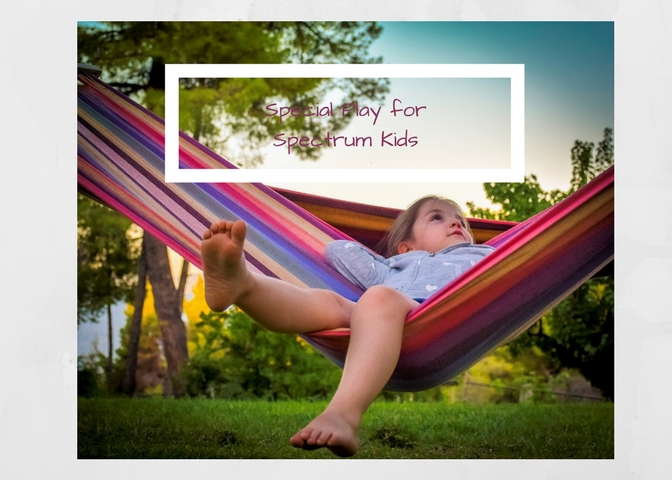Autism Awareness Month has wrapped up, but I think the information our guest writer is offering could be helpful for all the parents of children with the Autism spectrum, especially as we head into summer.
Outdoor time for children on the autism spectrum doesn’t have to be limited to sensory tunnels and solo play.
- How autism affects play
Children on the autism spectrum disorder enjoy play like everyone else. However, it’s the way they play that makes them unique. Many children on the spectrum have difficulty with communication and social skills. This makes it much harder to play imagination-based games, take turns, and copy simple actions. RaisingChildren.Net.Au explains that ASD kids tend to lean toward exploratory play. They may also find playgrounds overwhelming and may shy away from group activities.
- Why time outdoors matters
There are numerous benefits associated with going outdoors, especially for ASD children who may be more content to spend the majority of their time inside. Not only does it introduce important social skills but being outside may also help children increase their attention span, reduce stress, and growth physically stronger. Running, jumping and play coupled with exposure to sunshine and fresh air are quite simply good for the mind, body and soul.
- Family time in the great outdoors
One of the most important things parents can do is introduce them to outdoor experiences in a safe and protected environment. Backyard camping is a wonderful way to immerse ASD children in Mother Nature while still offering an opportunity for respite in their own home. Children who don’t wish to stay outside overnight in an unfamiliar environment may enjoy bird watching, which is an activity that will help them learn about the creatures in their own backyard without having to interact with them. Other fun outdoor family activities include washing the car, blowing bubbles and exercising.
- Embrace messes
As previously mentioned, children on the spectrum tend to enjoy exploring things on their own. This includes dirt, sand, slime, and anything that can be touched and explored at a self-directed pace. A sandbox, water table, or pool filled with homemade slime or non-Newtonian fluid is wonderful additions to the backyard play area. Gardening, which allows children to dig in the dirt, is another exploratory activity that pulls triple duty as a lesson about nature and an introduction into healthy eating. Nitrile garden gloves are a great option for parents and kids alike who want to play in the dirt but don’t like the feeling of mud between their fingers or underneath fingernails.
- Fun and functional sensory spaces
ASD kids may become overwhelmed even with gentle play and should have a safe space they can retreat until they’ve had an opportunity to process their environment. Enclosed tunnels are an option but there are numerous other ways to give a spectrum kid a calming space to call their own. A playhouse tucked in the corner of the yard, a hanging hammock chair, or portable pop- up tent are easily accessible and the latter can follow the child to school, the beach, or gatherings away from home.
- Playground safety
Playground safety for children with special needs requires a keen eye and continual observance of equipment to identify potential issues. The Center for Children with Special Needs explains that playground equipment should be appropriate and match the child’s stage of development as opposed to their chronological age. Surfaces should be filled up to a depth of 12 inches with a loose-filling material, such as mulch or tire mulch. It should be noted that special needs children should never be left alone and those prone to putting small objects in their mouths should be accompanied by an adult at all times.
Children with autism need the same amount of indoor and outdoor play as everyone else. The primary difference is the way these children play and the amount of parental involvement necessary to make the experience fun and rewarding. ASD children become overwhelmed easily and need to be able to retreat before a stressful sensory overload.
About the Author:
Danny is a dad living in Philadelphia. He enjoys DIY projects almost as much as raising his two children. He is the co-creator of FixItDads.com, which offers tips for home improvement projects.

